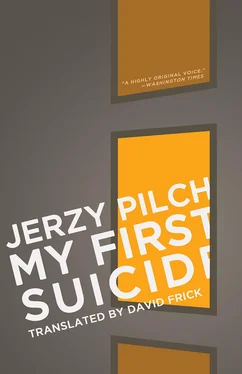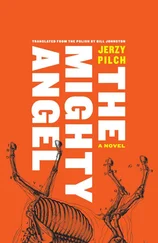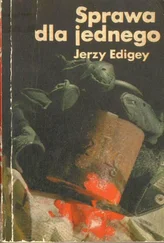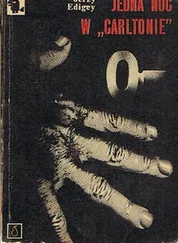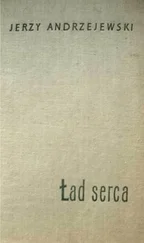But much worse than the Spirit of Light, than the Spirit of Darkness, than all the other spirits known to Janek, was the Spirit of Miraculous Discoveries. I think he kept it under his collar, I think it sat on his shoulder and whispered where he should look. Janek happened upon everything. I would be walking next to him on the banks of the same river, treading the same earth, but it was he who would bend down and pick up parts of Stalin-era motorbikes, feathers from Caribbean birds, cogwheels on quartz pivots, silver keys to God knows what safes. It was he who would pull out from the bottom of the deepest part of the river washed out dials from submerged clocks, fish skeletons coated with phosphorus, stones as symmetrical as octagons, brittle teacups without a single crack, bracelets of thick glass shining like green stars, Austrian, German, Russian, and even Swiss coins. I came upon nothing but unremarkable things: a tin cup, a smashed thermos, a penknife covered with rust, a fork with the inscription “Silesian Gastronomy.” Nothing worth talking about.
You could beat him at soccer sometimes, especially when he had too many bush leaguers on his team. I swam almost as well as he did. I had the same sort of household, maybe even a gaudier mixture. I was definitely better at chess — except that this remained somewhat in the realm of theory, since, once he realized that he couldn’t beat me, he ceased playing entirely. In any event, I had no complexes, I didn’t suffer. I was in his shadow, but I rather admired than envied him. The harmony full of perfect lights that he had within him aroused my adoration, not my envy.
But whenever he found the next remarkable object, whenever he would bend down, and, the next time, pull out, literally from under my shoe, the moveable fragment of some sort of phenomenal mechanism, or the brass buckle from a Red Army belt, or a retort overgrown with moss, which a group of wandering alchemists must have lost on this spot centuries ago — then I hated him with all my heart. There was an abyss between us in the art of observation: he was a master, I an abject loser. I always lost that match and always by a score of something to zero. I lost for a time. Not so much until the time of my desired victory as until the time of the final disaster. Until the time of the disaster of disasters.
Janek would receive his discoveries with manly self-restraint: no leaps or euphoria — it was just the norm; and, in fact, it was the norm that he always found something. But one day, when we had traversed the length and breadth of Wisła in pursuit of the vacationer in brocade dresses; once we had accompanied her practically to the very doors of Villa Almira and then run back down and descended, next to the swimming pool, to the water of the river, warm after the sultry day, and we set off along its twists and turns toward the reddish-brown sky over Czantoria Mountain, and when, under the third bridge, Janek bent down and dug something up from the river’s stone chippings — this time even he shouted, even he lifted his arms in victory. He held something very nondescript in his hand and waved it feverishly in my direction. I was in no hurry to celebrate his most recent triumph. I pretended that the water was offering greater resistance than it did. I approached slowly, but still — even when I was already quite near — I couldn’t recognize what he had come upon this time. Finally, seeing that I still didn’t get it, he put the thing to his eyes, and I understood that this was a pair of binoculars left behind by the Germans, similar to a fossilized crab, overgrown with gravel and algae. (And anyway, the number of binoculars left during the war by the retreating Wehrmacht is shocking. Sometimes it is impossible not to think that our earth, saturated with the blood of heroes and filled with the ashes of martyrs, is also overgrown with the lenses of Carl Zeiss.)
We began to scrub it while we were still in the water, then on the shore, then in our neighboring courtyards, and the more its original shape emerged out of the chaos, the higher my heart soared. And when, finally, it was entirely restored — that is, when, through one of its tubes, you could see some sort of image that was foggy, but brought nearer all the same — I became triumphally certain: this time I would be better. I didn’t even need to summon the Spirit of Miraculous Discoveries. I knew where to look.
IV
I searched the back room inch by inch. I looked under both beds. I dug out everything that was under the beds, and there was quite a lot of it. I looked into each and every shoe. I checked the straw mattresses. Night stands — so filled with objects that they were practically inflated — took me a lot of time. Then I checked the interior of the clock, the hearth under the stove, the ash pan under the hearth, and finally I stood before Grandma Pech’s wardrobe, heavy, deep, and dark as the ocean.
To say that no one but her had access to that wardrobe is to say nothing. Grandma herself seldom opened that wardrobe, and always with some sort of uncertainty or fear. She would then close the doors behind her; she would chase away anyone who just then happened to look in on the back room and ask her about something; just like in a film — she would block out the wardrobe with her own body, so that no one could even glance into it.
All the domestic furniture made themselves known: the table creaked, the stools were falling apart, the upholstery on the armchairs was tearing, the sideboard was headed for collapse, the stoves smoked — there was constant talk about pieces of equipment that were falling to pieces. We talked about them, and we talked to them; it was as if constant conversation with the dying objects was supposed to keep their spirits up. We talked especially frequently about all the cupboards: what to put in which one, what to bring from which one, in which one hymnals stand on the shelves, in which one Grandpa’s postal uniform was hanging, in which one there was a box of winter socks, in which one the bottom was falling out, in which one the locks needed to be oiled, in which one mice had danced the night before; this, that, and the other thing. All the cupboards were constantly on our tongues. But about the wardrobe in the back room — never even a single word. As if it didn’t exist, or rather, as if it were a wall-less specter, as if it didn’t have hinges, as if no one knew what was in it. As if demons with unpronounceable names lived in it, or as if the path to the abyss opened up in the wall behind it.
I stood before that wardrobe as before the gates to a forbidden city; there was a terrible silence in the entire house. The spirits of the world’s leading burglars sat on my shoulders and whispered advice about what I should do. My hands glided over the dark pear wood and correctly felt out the weak places. I guessed the most secret codes; invisible keys slipped into locks that had been oiled just a moment before; the tree rings in the wood were like a legible map leading straight to the treasure. The wardrobe in the back room, brittle like a decayed cork, or perhaps heavy like lead, opened slowly. I smelled the scent of silk blouses from the twenties. On hangers hung patterned and light dresses from those times — one with a deep décolletage in the back, a second made of pleated yellow crêpe de Chine; two satin jackets (one matte, the other shiny), a raincoat with circus designs, a jersey bathing suit — no ghosts, no werewolves: the spirit of a young girl lived in this wardrobe. The spirit of the young body of Grandma Pech, sprinkled with naphthalene as if with slaked lime, was imprisoned there. This was its kingdom, this was what was guarding — as if they were precious jewels — the brown suit and the green hunting outfit, which were hanging there on the other side; the yellowed curtains, which were lying on the shelves, and which, in their time, had hung in the windows; it watched over the bed linens, which fell apart in your hands; it dusted the stack of books from the bordeaux-colored series entitled Library of Masterpieces , which was hidden away in the depths; it was the spirit that looked through the album, wrapped in brittle oilcloth, with photographs from her first wedding; it had in its care all the ties, hats, neckerchiefs, scarfs; it was what hovered over the boxes that stood on the floor of the wardrobe.
Читать дальше
